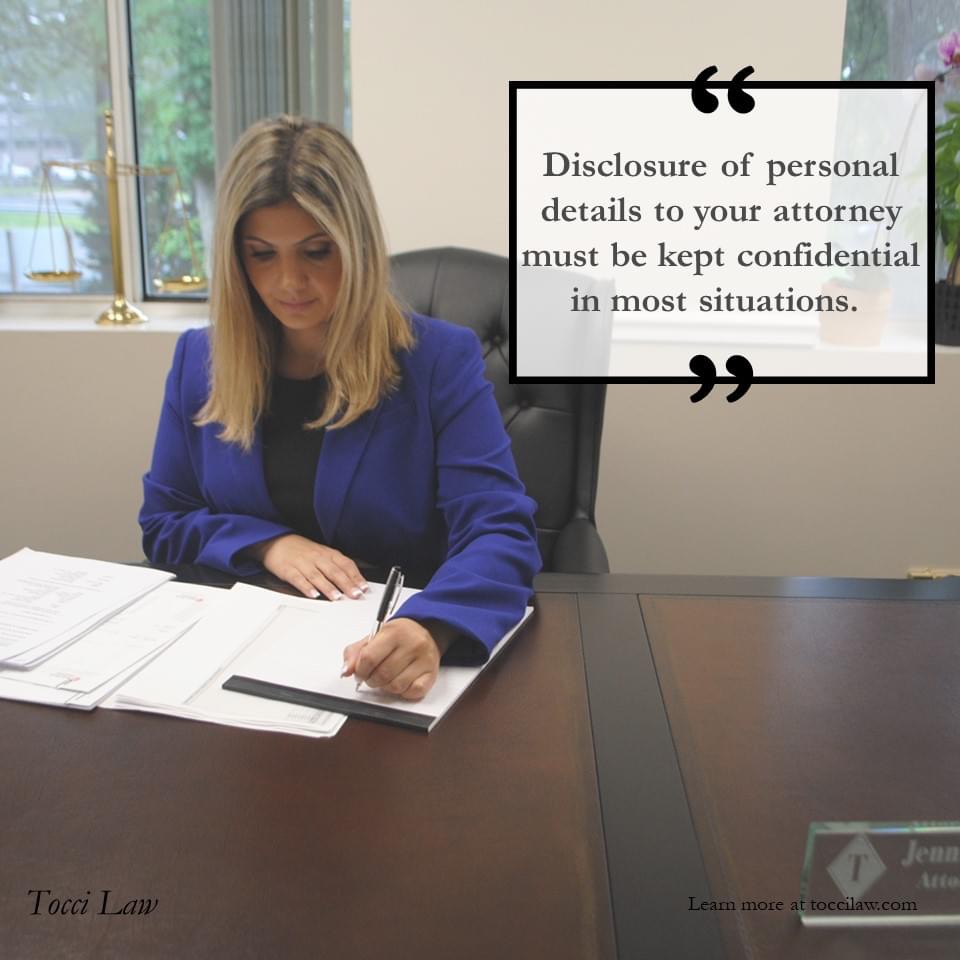When you hire or consult with an attorney, you have the benefit of the “attorney-client privilege.” Part of the attorney-client privilege is that your confidential communications with your attorney must be kept secret. While there are exceptions to this rule, generally, it applies to communications that relate to your representation. Client confidentiality facilitates the relationship between the attorney and client, as the client does not need to withhold information out of fear that the attorney will share it. Although you can rely on the attorney-client privilege (absent waivers and exceptions), disclosing information that you may feel is highly personal or even embarrassing can be unnatural. However, failing to disclose (whether purposefully or not), or worse, lying about certain information can potentially harm your case. Each personal injury case is different, and your unique facts and circumstances will influence how your attorney chooses to advise and represent you. Below are some examples of personal details you should share accurately and openly with your attorney. Some of the topics are seemingly unrelated, potentially leading the client to believe they do not need to fully disclose or truthfully disclose this personal information. The more forthcoming and accurate you are in your details, the more strategically your attorney can advise you. If you are worried about whether the details will be disclosed, feel free to ask your attorney if the information will be kept confidential.
Prior accidents:
It is imperative you disclose to your attorney whether you have been involved in any car accidents prior to your current accident. To successfully defend you, your attorney must be aware of every allegation a defendant may use against you. Insurance companies and defense attorneys have the ability to discover your driving and accident history. Whether you have suffered injuries in a previous accident or not, insurance companies will try to allege your injuries are just preexisting injuries from a prior accident. Disclosing this information to your attorney will help plan for this argument. This is especially true if you have injured the same part of the body as you have in a previous accident.
Failing to disclose or lying about this information, especially in a deposition/ on the record, could destroy your credibility with the jury. Once you appear to be uncredible, it will be hard to gain the jury’s trust. Even if you are completely honest about all other details, the jury has the basis to not trust your position.
Your case is not destroyed just because you were in a prior accident, but it could be destroyed if you try to hide it. Disclosing prior accidents to your attorney helps to get in front of a potential problem and lessen its significance in your current case. Your attorney may provide defense counsel with medical records from your prior accident to prove you did not injure the same body part or to show that your injuries are worse because of this accident. Most people have been involved in prior accidents; Law Offices of Jennifer G. Tocci, P.C., is well-versed in handling all types of situations involving prior accidents.
Later accidents:
This is where you are involved in an accident when your current case is pending. If this happens, it is crucial to contact your attorney as soon as you are able. Similar to having been in a prior accident, sustaining injuries in another car accident can exacerbate your injuries. Your attorney should take prompt action, assisting in making a clear record of which injuries are caused by which accident. A distinct timeline differentiating which injuries appeared and when will help the jury draw the best conclusion. If the accidents occurred in the same manner, you want your attorney to be ready to defend claims that you have a record of being involved in a certain type of accident. It is better to overshare with your attorney than to under share.
You may be less inclined to call your attorney to inform them of your accident if you did not experience injuries, but this is when it is most important. Your attorney will work to prevent the success a defendant will have in blaming your injuries on a later accident. Although the defense may try to argue that your current injuries are the result of your later accident, you want your attorneys to be prepared to place liability on the proper party.
History of injuries and surgeries:
Your attorney should be made aware of all injuries and surgeries you have had, both before and after your accident, even if they are unrelated to a motor vehicle accident or your current injuries. Whether your medical history is related to illness or injuries, this information assists your attorney in litigating your case. In situations where you experience an injury or require surgery for a later accident, the defense may claim 1) you injuries are not related to the current accident and 2) if you were injured from the current accident, you would not have been able to perform the activities that led to the later injuries if you were truly injured in the current accident. These allegations could be untrue, and you want your attorney to be ready to dispute and neutralize them.
Involvement in any lawsuits:
Regardless of the nature of the lawsuit, your attorney should be aware of all involvement with the judicial system. Whether you were sued, you have been sued, or you were called as a witness, it is important that your attorney is aware. If your case proceeds to depositions, defense counsel almost always asks whether the plaintiff (person filing the lawsuit) has been involved in a prior lawsuit. Forgetting, lying, or failing to disclose such information could destroy your credibility with the jury.
Criminal history/being in trouble:
The defendant may try to dig up information that can be used to potentially harm the merits of your case. You want to lessen the effects your involvement with the criminal justice system has in your accident case. This means you should inform your attorney about both your criminal history and instances where you have been investigated, suspected, or charged with a crime. It is important to be completely transparent with your attorney as to what you have been charged and convicted with in the past, that way they can ensure you will be prepared if questioned in court. How you respond to questions about your past could make or break a jury verdict.
Citizenship status:
New York allows individuals who are injured as the result of the negligence of another to start a personal injury lawsuit regardless of your citizenship status. The court system is designed to hold the parties who caused your injuries responsible. While you are legally entitled to start a lawsuit for personal injuries, you want your attorney to prepare you for potential questions about your immigration status. If you are claiming lost wages and work off the books, you want your attorney to be aware of your situations so you can be properly advised.
Martial Status:
Your martial status matters in a personal injury lawsuit. Your spouse could be entitled to a claim for “loss of consortium” or “loss of services.” If your spouse’s life was affected by your injury, whether they had to take care of you, or participate in activities alone while you were injured, they may be a part of, and enhance, your claim.
It is especially important to know if you are plan on starting a divorce of if you have ever been divorced. Your spouse (or ex-spouse) may be entitled to part of any award or settlement you receive. You want your attorney to properly advise you on how to protect your settlement. Furthermore, if you spouse is divorcing you because of your injuries, that could bolster your personal injury claim.
Your child support obligation:
If you have a child support obligation your personal attorney should know. Your personal injury award or settlement may be used to satisfy child support arrears or claim for unpaid child support. Your attorney can best advise you when aware of your situation.
Employment status/income:
Your employment status frequently affects your personal injury case, as you are entitled to claim lost wages resulting from the accident. We need to know where you are employed, how frequently you work, and how much you earn. If you are not working or have interrupted employment because of your injury, the more details your attorney knows, the stronger they can design your claim. Even if you were not steadily employed prior to your accident, you could be entitled to lost wages at the rate of any New York State Unemployment Benefit. You may be entitled to workers compensation or disability so that you can collect now instead of at a later time. If you are collecting any form of public assistance, you want your attorney to know because you could have a lien against your case seeking repayment for your lost wages. If you are working off of the books, you want your attorney to know how you pay income tax, when you last paid income tax, and the next time you plan to pay income tax. If you own a business or have other streams of income or revenue, they could be a basis for a lost wage claim. Providing your attorney with a clear picture of your situation will help your attorney to assert the proper claim for lost wages. You could miss out on something you are entitled to if you treat your employment status as unimportant.
If you have or plan to claim bankruptcy:
Your bankruptcy status can greatly affect your personal injury matter. If you have a personal injury matter pending and plan on claiming bankruptcy, you may forfeit control over your case and personal injury proceeds. If you have claimed bankruptcy, creditors can go after a portion of your proceeds to pay your debtors. You may be entitled to certain exemptions, depending on which type of bankruptcy proceeding you file. However, in most situations, funds allocated for pain and suffering, which are frequently the bulk of an award or settlement, may be used to pay off creditors. Informing your personal injury attorney (and your bankruptcy attorney) about all of your matters will help you receive the best advice for you.
Medicare/Medicaid status:
In New York, if any portion of your medical expenses are paid for by Medicare or Medicaid, you could owe that money to the state if you receive money from your injury case. New York has an anti-subrogation rule, which does not allow many health insurance companies assert a lien against your case in most situations. Medicare and Medicaid are not governed by the anti-subrogation laws. This means that if Medicare or Medicaid pays for part of your medical bills for injuries and treatment related to your accident, you could have to pay those fees back. When your attorney is aware of your Medicaid/Medicare status, they can potentially lessen or avoid the amount of money you owe to the state.
Your health insurance:
New York’s anti-subrogation rule mentioned above does not apply to federally issued health care insurance policies. Federal employees or spouses and children of federal employees who receive health insurance from the federal employee’s job will have to repay funds for medical expenses. It is important to disclose this information to your attorney so that they can advise you on how to avoid or lessen a lien against your case.
Everyone who lives in your household:
You should tell your injury attorney about every person who lives in your household, even adult children, family members’ significant others, and people who are unrelated to you. You may be able to assert an uninsured/underinsured (UM/SUM) claim against their insurance policy. This is helpful in cases where the value of your injuries exceeds the defendants’ coverage and your coverage. At the Law Offices of Jennifer G. Tocci, P.C., we can assess all potential insurance policies to ensure that you are maximizing the amount of insurance protection available to you.
Orders of protection against you or in favor of you:
Details about a prior domestic violence or harassment case may be something you think your injury attorney does not need to know. However, there are situations where parties in the vehicle, witnesses to the accident, or other parties may be called on to testify in your personal injury matter. You want your attorney to be aware of all persons you cannot be in contact with and who should not be in close proximity to you. This could prevent an unforeseeable disaster down the road.
Anything you think may be important:
You may have a unique situation you are experiencing that you think could be important for your attorney to be aware. At the Law Offices of Jennifer G. Tocci, P.C., we encourage our clients to inform us of details they think could be important. Even if we decide that those details ultimately have no bearing on your case, it is better to know than to not know something important.
Closing:
The bottom line is your personal injury attorney needs to know a lot about your personal life, in addition to the facts of your accident and current injuries. Disclosure of personal details are required to be kept confidential in most situations. Find an attorney you trust and feel comfortable with discussing sensitive information. Contact us today for a complimentary consultation where we can get to know each other and provide you with a case analysis.
Law Offices of Jennifer G. Tocci, P.C., 353 Veterans Memorial Highway, Suite 200, Commack, New York 11725.










